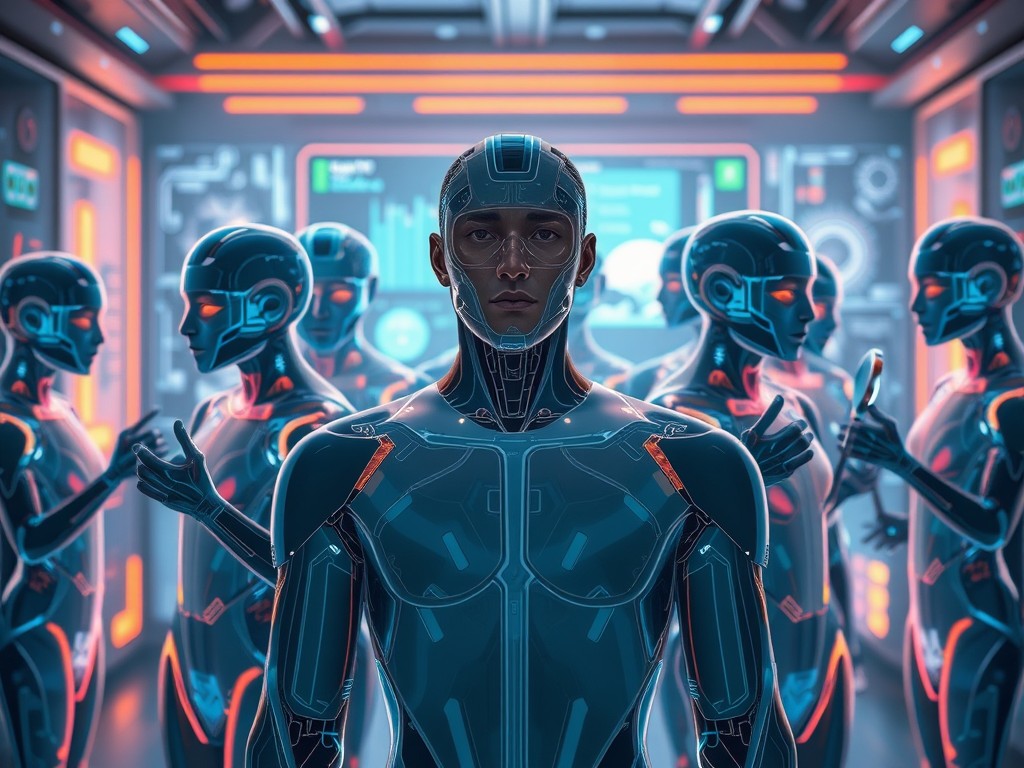Imagine a world where an AI model, after just two hours of conversation with you, could replicate your personality with 85% accuracy. This isn’t the plot of a sci-fi movie—it’s the reality researchers from Google and Stanford have unveiled. With over 1,000 participants, they’ve demonstrated that “simulation agents” can mirror human responses to social surveys, personality tests, and even ethical dilemmas. The implications? Groundbreaking, yet unsettling.
A Revolutionary Tool for Understanding Humanity
The potential of these AI replicas is vast. By simulating human behavior across various contexts, researchers can now explore complex societal questions without the ethical and logistical constraints of traditional studies. Want to gauge public reactions to a new health policy? Curious about how people might respond to a global crisis? These AI agents can act as proxies, providing insights that were previously out of reach.
For organizations, this technology could redefine how products are launched, how strategies are tested, and how human behavior is understood. For example, public health initiatives could be simulated to predict their effectiveness before implementation, saving resources and potentially improving lives.
The Ethical and Practical Questions
But while the possibilities are enticing, the ethical questions loom large. If AI can replicate our personalities, where do we draw the line between simulation and manipulation? These AI replicas could be exploited in ways that challenge our understanding of identity and consent. Could malicious actors use them to impersonate individuals, spreading misinformation or committing fraud? It’s not hard to imagine a world where simulation agents become tools for deception, not progress.
Moreover, as the study highlighted, these AI models struggle with tasks that involve nuanced social dynamics. While they may excel at predicting responses to surveys, they fall short in replicating the unpredictability of human decision-making in complex, interactive scenarios. This limitation reminds us that, no matter how advanced AI becomes, it still cannot fully replicate the intricacies of human thought and behavior.
A Mirror to Ourselves
One fascinating aspect of this research is how it mirrors the complexities of our personalities. By creating “mini versions” of ourselves, we’re essentially holding up a mirror to our values, attitudes, and decision-making processes. This self-reflection could have profound implications for personal growth and understanding.
Imagine using an AI replica to test how you’d react in certain situations or to understand your biases better. Could this technology help individuals grow, improve relationships, or make better decisions? While the ethical concerns remain, the opportunity for personal and societal development is intriguing.
A Call for Responsible Innovation
As Joon Sung Park, one of the study’s authors, put it, “If you can have a bunch of small 'yous' running around and actually making the decisions that you would have made — that, I think, is ultimately the future.” But with this vision comes immense responsibility.
We must ensure that this technology is developed and used ethically. Transparency, consent, and robust regulatory frameworks will be essential to prevent misuse. Additionally, public understanding of AI’s capabilities and limitations will play a crucial role in navigating this new frontier.
Conclusion: A Double-Edged Sword
The ability to create accurate AI replicas of human personalities in just two hours is a technological marvel, but it’s also a double-edged sword. On one hand, it offers unparalleled opportunities to study and predict human behavior. On the other, it challenges our notions of identity, consent, and ethics.
As we venture into this brave new world, we must balance innovation with caution. After all, the power to replicate humanity should not come at the cost of what makes us human. Are we ready for a future where mini versions of ourselves could roam the digital world? Perhaps—but only if we’re willing to navigate its complexities with care and responsibility.
Reference:
“Just 2 hours is all it takes for AI agents to replicate your personality with 85% accuracy.” Owen Hughes. January 4, 2025. Live Science.




